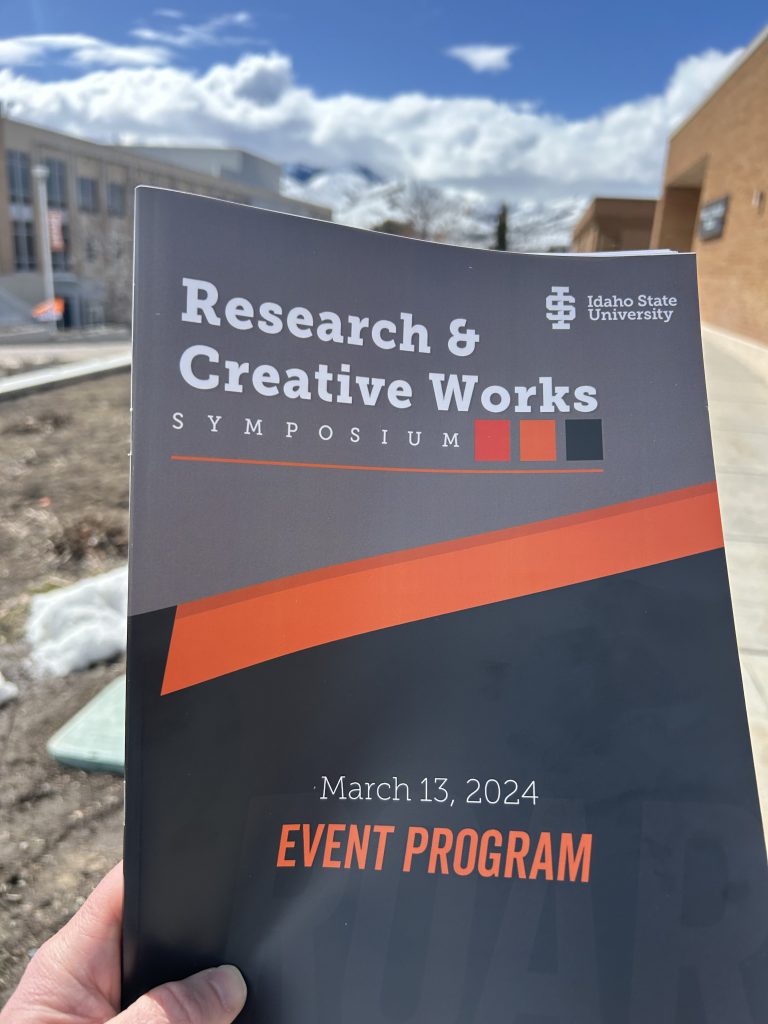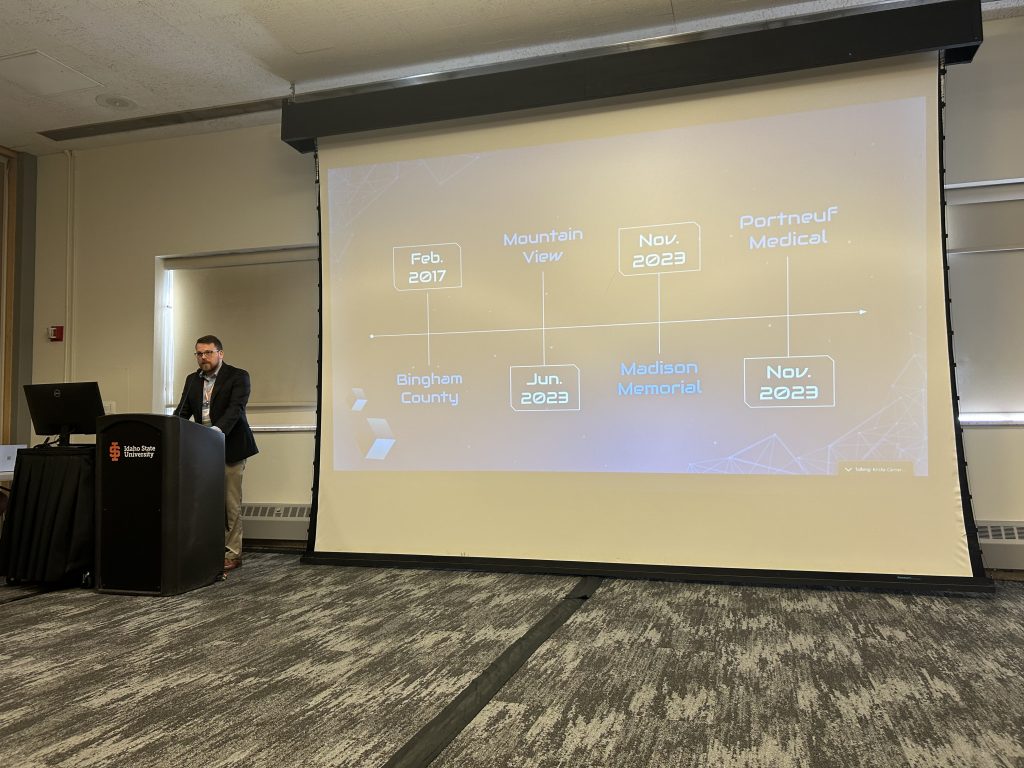Two weeks ago ISU hosted its annual Research and Creative Works Symposium. It is a really neat event that gives any student – graduate or undergraduate – a forum at which to share their work. Students simply sign up and voila they have a speaking spot in front of a panel of judges and anyone who might come support them!

I think this is a very useful, low stakes practice for students.
This year I am supervising two graduate student research projects. One, who chose to present at the conference, is investigating the effects of ransomware in Southeast Idaho. A handful of organizations, including local governments, health care, and manufacturing have all taken a ransomware hit. The student’s research is qualitative, relying on interviews with individuals who were impacted. Really insightful to have a collection of first-hand perspectives.

I was so impressed that all my graduate students will be required to present next year!
But that wasn’t what I found the most intriguing. After my student presented, I stuck around to hear other presentations.
I was especially intrigued by research into training levels of psychiatric technicians. Psychiatric care technicians work in mental health facilities and have more regular contact with patients than any other health care provider. They engage in a variety of interventions, including group therapy sessions.
Despite the boots-on-the ground role that these technicians play for patients, in Idaho and 45 other states (if I remember the statistic correctly), there is no baseline education or training requirement for such technicians.
The student had created and administered a questionnaire to a variety of psychiatric care professionals at a local psychiatric hospital to see what level of training psychiatric technicians should have. The student’s research found (again if I remember correctly) that a technician should have between 8 and 40 hours of training related to their role – which training could be concurrent with job function.
When she was finished, another member of the audience (who I surmised was the student’s supervisor) asked “what do you plan on doing next?”
“Well,” the student responded, “In our program we have learned about lobbying. I am going to lobby for change. I think there needs to be a minimum level of training these technicians need to have.”
Ahhh. Now you can see where I am going…
In the OT sphere, in the USA alone, we have probably several hundred thousand technicians – instrumentation and control technicians, electrical engineering technicians, mechanical engineering technicians – who install, configure, operate and maintain industrial control systems – systems that provide electricity, drinking water, and manufactured goods. Not a single state (0 of 50) requires them to have any cybersecurity training or demonstrated competence.
“Wow”, I thought, “We require barbers and hairdressers to have professional licensure in all 50 states. But there are no requirements for those individuals whose job performance directly affects the well being of millions.”
This is an addressable issue. Let’s get on it.